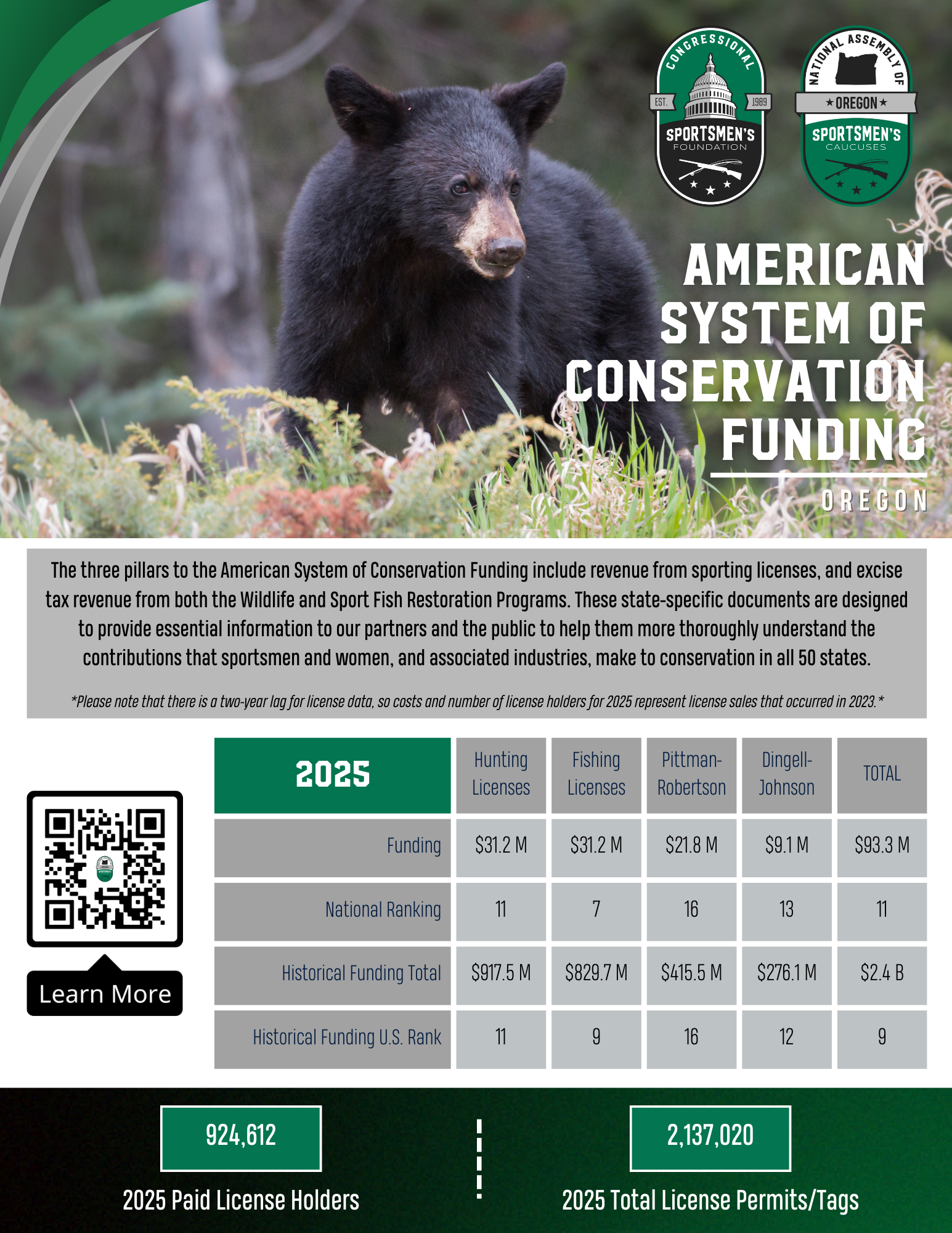Summary In addition to the American System of Conservation Funding, some states have begun to seek alternative methods of funding for their fish and wildlife agencies. A conservation sales tax on all taxable goods is one such mechanism that states might consider implementing. This excise tax is primarily applied to sporting goods such as firearms …
Summary Over the last few decades, rising costs for natural resource management and increased public utilization of these resources has led to the need for additional methods of funding for conservation. Dedicating lottery proceeds to funding conservation can assist with efforts such as increasing access to public lands, habitat and endangered species conservation, wildlife education, …
Summary Properly managed wildlife habitat is essential for supporting sustainable and healthy wildlife populations. Well-managed lands containvarious successional stages that provide a diversity of habitats capable of supporting a diversity of wildlife. On federal lands, however, young forests and other early seral habitats are often underrepresented. The most efficient method to improve wildlife habitat is …
Summary Poaching stands as one of the greatest threats to both the social acceptance of hunting and professional wildlife management. By definition, poaching runs afoul of laws governing the harvesting of wildlife, thus upending the scientifically-developed regulations put in place by state wildlife managers. Further, anti-hunting communities have aimed to equate poaching with hunting in …
Summary With the increased sophistication of poachers and other wildlife violators, there is a need for increased levels of coordination and information sharing on these individuals between state fish and wildlife agencies. The Interstate Wildlife Violators Compact (IWVC) creates the mechanism allowing for this coordination. The availability of this information helps stop poachers and other …
Summary Exotic invasive species are plants, animals, or pathogens that are non-native to the U.S., or regions of the U.S., and that harm, or are likely to harm, the economy, natural resources or human health. Addressing exotic invasive species requires significant coordination and joint actions between federal and state agencies, local governments, and private organizations. …
Summary Funding mechanisms for search and rescue (SAR) operations vary by state, but for those in which sportsmen-generated dollars cover the costs associated with these efforts, the end result is a loss in crucial money otherwise delegated towards conservation and wildlife management. States are encouraged to explore alternate methods of funding for SAR crews, in …
Summary Established with the dedicated purpose of protecting and conserving wildlife, game commissions have been understandably staffed by experts in the field throughout their existence. Such experts’ ability to make responsible and effective decisions regarding wildlife management has become contested through non-sportsmen and women pushes for representation on game commissions. Having board members that are …
Anti-Hunters Pushing for Seats on Game Commissions Read More »
Summary Anti dog-hunting groups oppose hunters’ use of dogs to both hunt and aid in the tracking and recovery of game. Without dogs, sportsmen and women’s success afield, along with their ability to recover game, would be severely limited. Additionally, by hunting with dogs, sportsmen and women are able to fulfill their ethical obligations as …















